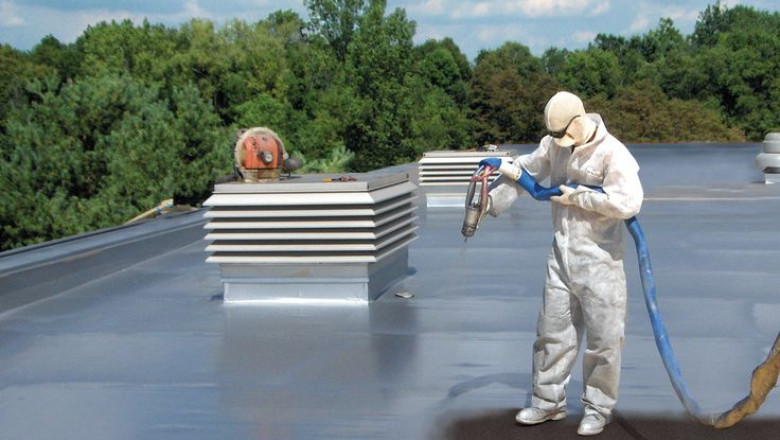views
Waterproof coatings are thin films or paints applied to materials and surfaces to prevent water from penetrating through. They are crucial for protecting a wide range of materials from damage caused by water exposure. Many consumer, industrial, and architectural applications rely on waterproof coatings to ensure durability and effectiveness.
Types
There are several main types of waterproof coatings used today, each suited to different applications and materials. Epoxy coatings are tough, durable polyester or acrylic resins ideal for concrete, metal, and machinery surfaces. Silicone coatings provide exceptional flexibility and longevity on roofs, windows, and other areas exposed to weathering. Polyurethane coatings offer high performance for protecting floors, wood, leather, and fabrics. Asphalt and bitumen coatings are inexpensive options used extensively in roofing applications. New biomimetic coatings mimic the water-repellent properties of lotus leaves and insect wings for superior water resistance.
Waterproofing in Construction
Construction relies heavily on Waterproof Coatings for everything from foundation to rooftop. Below-grade walls require waterproofing to prevent moisture penetration that can damage structures over time. Epoxy and polyurethane coatings are commonly applied to concrete basements, retaining walls, and planters. Various single-ply and liquid-applied membranes provide roof waterproofing protection from water on low-sloped and flat roofs. Floor coatings are essential for preventing water damage in areas prone to flooding or plumbing leaks like bathrooms, basements, and industrial facilities.
Protecting Consumer Goods
Many consumer products require waterproofing coatings to maintain functionality when exposed to moisture. Leather goods, fabrics, footwear and apparel all incorporate water-repellent finishes to resist moisture penetration. Silicone and polyurethane are widely used for their flexibility and ability to bead water off surfaces. Electronics also depend on hydrophobic and oleophobic coatings to repel water and protect circuitry in devices regularly exposed to spills, precipitation, and accidential submersion. New treatments allow devices to briefly function while wet without damage.
Military and Industrial Applications
Harsh environments demand high-performance waterproofing for equipment and infrastructure. Epoxy and polyurethane coatings protect bridges, vehicles, machinery, and industrial structures against corrosion. They are applied to ship hulls, offshore oil rigs, containers, and more. Tactical gear, canvas tarps, tents and watercraft for military, rescue, and work applications often use silicone or fluoropolymer treatments for maximum repellency, breathability, and durability. Waterproofing prevents downtime and equipment failures in wet conditions important to many industries.
The Future of Waterproof Coatings
As modern materials and technologies evolve, so too will waterproof coatings. Research aims to develop self-healing formulations that reseal minor defects. Antimicrobial properties could help slow biofilm growth. New fluorine-free alternatives may replace per- and polyfluoroalkyl substances (PFAS) for environmental reasons. Biomimetic advances may yield coatings with lotus-like ultralow adhesion preventing biofilm buildup. Functional options incorporating conductivity, color-change indicators, or energy harvesting could expand uses. Continued innovation will drive waterproof coatings to new performance frontiers, expanding their indispensable role.
Select the language you're most comfortable with-
About Author-
Ravina Pandya, Content Writer, has a strong foothold in the market research industry. She specializes in writing well-researched articles from different industries, including food and beverages, information and technology, healthcare, chemical and materials, etc. With an MBA in E-commerce, she has an expertise in SEO-optimized content that resonates with industry professionals. (https://www.linkedin.com/in/ravina-pandya-1a3984191)






















Comments
0 comment